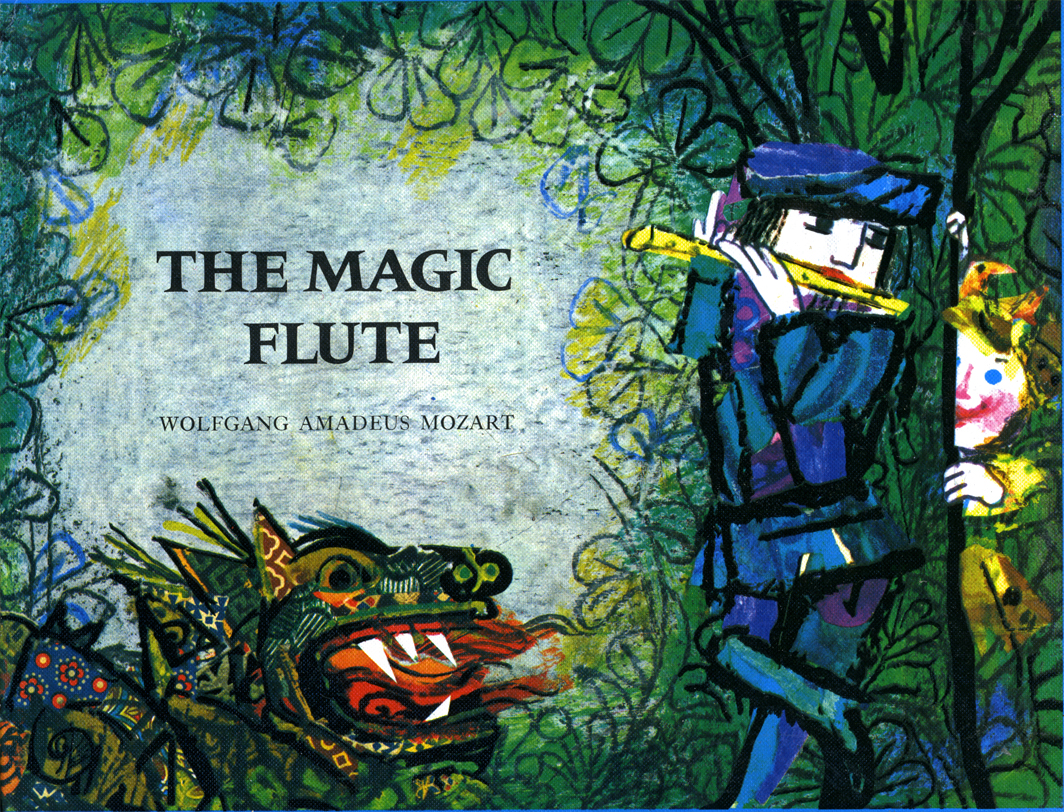Giaocchino Rossini’s The Barber of Seville is officially classified as an “opera buffa”—Italian for “funny opera”—but a more accurate label might be “opera commedia dell’arte.” The opera takes the instantly recognizable stock characters of the commedia dell’arte—the airheaded young lovers, the scheming old curmudgeons, and, above all, the clever servants—and gives them music to sing that mimics the witty rapid-fire patter of the commedia clowns. At a talk-back interview session I attended after the Friday show, director Robert Swedberg said that his production of Barber was actually inspired by vaudeville, the closest American equivalent to the commedia. Swedberg stated that the vaudeville concept gave the performers the freedom to break the fourth wall and interact with the audience more. This makes sense, since the thing that made both the commedia dell’arte and vaudeville so influential was the heightened emphasis on improvisation, but doing improvisational comedy while singing a million syllables per second and projecting over a huge orchestra is a tall order indeed. Still, the performers were obviously game for this challenge, and there ended up being a surprising number of laughs interspersed with all the singing, which is the ultimate goal of a “comic opera,” I guess.
*Note: like all University Opera productions, this show has two casts. For this review, I mention the members of the Thursday-Saturday cast first, and then the members of the Friday-Sunday cast.*
Jacob Wright and Francisco Bedoy daringly sang the thankless role of Count Almaviva, a part that offers crazy vocal challenges and little opportunity for characterization beyond “Male Romantic Lead.” Still, both tenors obviously enjoyed the parts of the opera where Almaviva gets to disguise himself: Bedoy’s performance as a drunken soldier was marvelously ludicrous, and Wright’s portrayal of an obsequious music-teacher was understatedly silly. Ian Greenlaw was practically made of charm as Figaro, the mastermind barber who keeps the plot moving forward with his inventive, occasionally-successful schemes. Isaac Droscha, in the same role, was blessed with an extremely robust and agile voice, and behaved onstage like a true commedia dell’arte clown, throwing in countless little comic asides that landed perfectly every time. Nicholas Davis and Jesus Murillo were both awesome as nasty old Doctor Bartolo. They played the conceited old grouch perfectly and hilariously, and brought the vocal goods with an endless supply of powerful low notes (and some truly STUNNING high notes as well).
The two singers who portrayed Rosina, the leading lady of the show, gave performances that were every-so-slightly different but offered noticeably different takes on the character. Ashley Dixon played the character as more precocious and playful, while Sarah Coit gave a performance that was more knowing, more poised. Both actresses showed that Rosina is really the female counterpart of Figaro, the clever trickster; I was honestly a bit surprised that Rosina and Figaro didn’t end up together at the end. Both Dixon and Coit had lovely and nimble mezzo-soprano voices that made everything they sang sound absolutely effortless.
Both Glenn Healy and Jonathan Harris clearly relished the role of the villainous schemer Don Basilio, with their murkily deep bass voices. Healy’s Basilio was a bit crazier, Harris’s a bit slimier. Kate Nadolny came close to stealing the show as the weary and chronically sneezy maid, Berta. Her droll sense of humor enlivened every scene she was in, and her dance number with a mop during her aria was a highlight. In the same role on Friday night, Frencesca Chiejina hit some truly impressive high notes with a surprisingly rich voice that made a great contrast to her adorable onstage bearing.
Conductor Clinton Smith kept the show moving along, although sometimes it seemed as though the singers were being drowned out by the orchestra. The rollercoaster music of Rossini was deftly played by the University Symphony Orchestra, which had too many talented musicians to name individually here, although the two fortepianists Michael Babgy and Michael Sherman must be applauded for being willing to wear a big white wig and an eighteenth-century period costume for the entire show. Jeff Bauer designed both the sets and the costumes, and the warm colors of the sets and the costumes noticeably complemented one another. In addition, Erin Kennedy Lunsford’s blazingly bright wigs were a delight to look at, and they complemented Bauer’s designs as well. Lastly, Rob Murphy’s lighting design had excellent comic timing.
Even by the standards of many nineteenth-century comedies, The Barber of Seville has a very convoluted plot. Despite some very tasteful cuts that reduced the show to a reasonable length, the sheer number of absurd digressions and dead ends built into the structure of the opera meant that there were a few times when the energy of the show was taken down a notch. At these points, I found myself sometimes wishing that the director and the actors had pursued their comedic impulses a little further, introduced a little more vaudevillian anarchy into the opera. Still, there was no denying the joyous feeling that I had when I walked out of the theatre; this Barber made for a charmingly goofy night at the opera.




